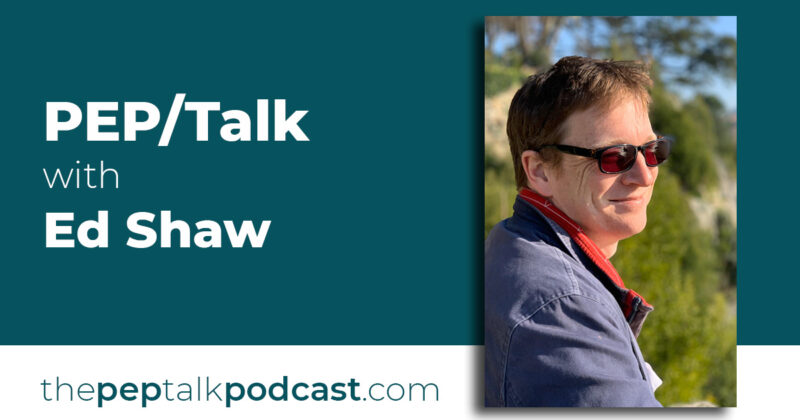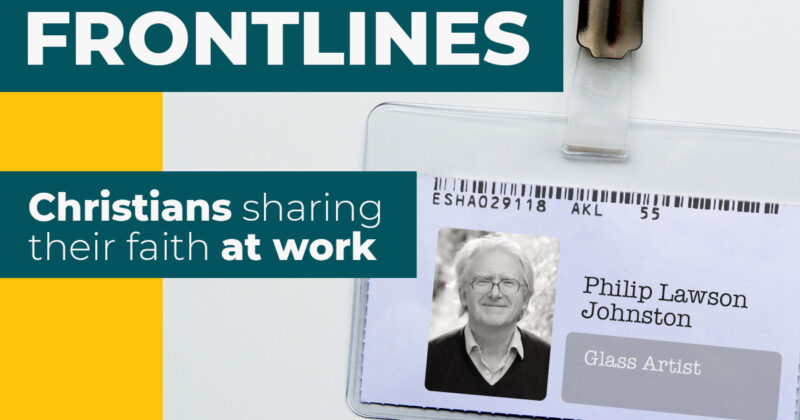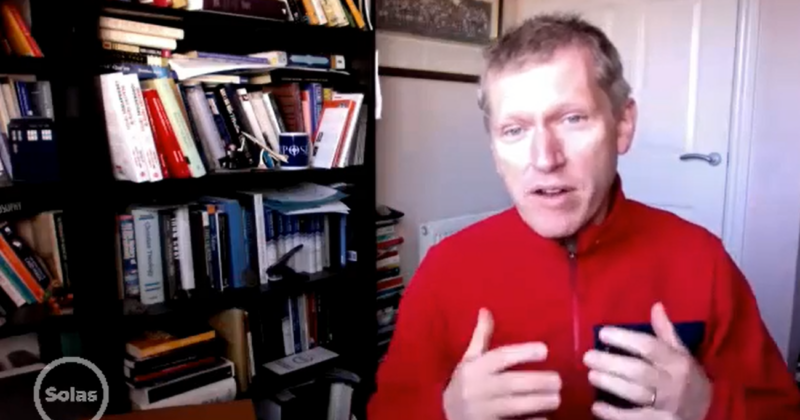A pastor friend and I were chatting on one occasion and he sadly remarked about how hard he had been finding it to get members of his church involved in evangelism. “It’s frustrating,” he said, “it’s probably easier to get people to sign up to clean the church loos with a toothbrush than it is to get them involved in evangelism.” I’ve heard similar things before and another pastor once said to me that he reckoned only about 10% of his church were passionate about evangelism. “We’ve got an apathy problem in the modern church”, he said.
The reluctance that we Christians sometimes have to talk about our faith has also been noticed by atheists. Penn Jillette is a world-famous comedian and magician, one half of the double-act Penn and Teller, whose live shows and TV series have been watched by millions. He’s also an outspoken atheist, well-known for his withering and blistering attacks on Christianity. But a few years ago, he surprised his fans by releasing a video blog called ‘A Gift of a Bible’.[1] In the video, Jillette tells the story of a man who came up to him after a show and after complimenting him on his performance, nervously presented him with the gift of a Bible saying: “I wanted you to have this”. Jillette remarked what courage this must have taken, given his reputation as a fiery atheist—but then rather than criticise the man for his religious faith, Jillette continued:
I don’t respect people who don’t proselytize. I don’t respect that at all. If you believe that there is a heaven and hell and that people could be going to hell or not getting eternal life or whatever, and you think that, well, it’s not really worth telling them this because it would make it socially awkward! How much do you have to hate somebody to not proselytize? How much do you have to hate somebody to believe that everlasting life is possible and not tell them that? I mean if I believed beyond a shadow of a doubt that a truck was coming at you and you didn’t believe it, but that truck was bearing down on you, there’s a certain point where I tackle you. And this is more important than that.
Penn Jillette is absolutely right. If we truly believe the message of the gospel, that a person’s eternal destiny depends on them hearing and responding to the incredible news about Jesus, how can we even conceive of keeping this to ourselves? What precisely is going on here? What explains the apathy gap that holds so many of us back from evangelism?
FOUR CAUSES OF EVANGELISTIC APATHY
I think there are a number of reasons why when it comes to evangelism, our fear of looking foolish (or of social awkwardness as Jillette put it) often trumps our desire to share the gospel with our friends, colleagues, and neighbours. In fact I can think of four reasons that can sap our evangelistic fervour and turn us into missional couch potatoes.
First, some of us have lost our sense of urgency. When we’re faced with a real emergency, we don’t tend to worry about looking stupid. Imagine the scenario: it’s 11pm and you’re lying on the sofa, watching Strictly Come Morris Dancing, whilst wearing the lovely fluffy orange pyjamas your grandma bought you for Christmas along with your favourite slippers (made in the shape of rabbits). In short, you look like a twit, but it’s your own home, so who cares. But then you happen to glance out of the window and notice that your neighbour’s roof is on fire. You reach for your phone to call them but the line is out of order. So, do you: (a) think, “Ah well, let them burn”; (b) wait for somebody else to run across the street and warn them; or (c) charge out of your front door—orange pyjamas, rabbit slippers and all—to ring on their front door and alert them to the danger?
In that situation, I imagine, our compassion and desire not to see our neighbours toasted to a crisp trumps our worry about our bedtime attire looking silly. The situation was urgent and life threatening, so we didn’t worry about maintaining our reputation for sensible fashion choices.
So why, when it comes to evangelism, does our worry about looking awkward (or even foolish) overcome our desire to tell our friends about Jesus and about the rescue he offers from an eternity separated from God? Could it just be that we’ve forgotten how urgent the gospel message is—and maybe we need to recapture a sense of that urgency?
Second, I wonder if some of us have privatised the gospel. We live in an age that encourages us to see treat our faith as a private thing—consumerism and secularism, those toxic twins, have combined and caused many of us to retreat behind the walls of our churches and houses. And if your faith in Jesus is nothing more than a private thing—little better than a hobby (your neighbour goes to Flower Arranging and Chainsawing Classes on a Sunday, you go to church)—then that’s going to totally sap our evangelistic energy. Why the desperate need to persuade others to believe the same as you do, if Jesus is just another option on the smorgasbord of possibilities. In some ways, the coronavirus pandemic has made this temptation even worse—when churches moved online, suddenly we could choose when and where to listen to the sermon: sitting on the couch, whilst going for a run, in the bath, whilst re-arranging tulips with a power-tool. But an individualised, personalised, privatised faith is very hard to get excited about.
Third, some of us have allowed the gospel to become watered down to such a point that it is little more than ‘good advice’. Back in 2005, two sociologists, Christian Smith and Melina Denton, undertook a study of thousands of American Christian teenagers. They discovered that what these young people believed wasn’t historic Christianity, but a somewhat different set of beliefs:
- A belief in a distant, remote God who created and runs the world
- This God wants people to be good, nice, and kind to each other (and that this is taught by most the world’s religions)
- The main goal of life is to be happy, secure, and fulfilled
- God doesn’t need to be involved in your life except when you need him to fix a problem
- All good people go to heaven when they die
Smith and Denton coined the term ‘Moral Therapeutic Deism’ to describe this set of beliefs and in the 15 years since they wrote their book,[2] it has spread far more widely than simply among North American teens. In many parts of the modern church, Christianity has at times been turned into something more approaching a self-help plan, God has become our celestial therapist, and Christianity one more means of achieving happiness.
As long as we believe, deep down, that Christianity is merely good advice, or suggestions, or a self-help plan, or even a moral code, we are going to miss its power and we will struggle with the motivation to really want to share Jesus with our friends. But of course Christianity is far more than those things. The first Christians, when they chose the word to describe their message, didn’t pick a word like ‘advice’ or ‘method’, or even ‘religion’, but they chose the word gospel, which means good news. As the well-known theologian N. T. Wright points out, this makes all the difference:
[M]any people today assume that Christianity is … a religion, a moral system, a philosophy. In other words, they assume that Christianity is about advice.
But it wasn’t and it isn’t.
Christianity is, simply, good news. It is the news that something has happened as a result of which the world is a different place … One can debate the merits of a religion, moral system, or philosophy, but a news event is discussed in a different way. Either the event happened or it didn’t; if it did happen, either it means what people say it means or it doesn’t.[3]
The more we get it into our heads, hearts, and souls that Christianity is good news—tremendous news, life-changing news, world-shaking, world shattering news, the more that will impact our motivation to share this with others.
Fourth, the cheap price we have paid for the gospel can sometimes lead to apathy. Sometimes we can forget how relatively easy it is to be a Christian in the west. Yes, maybe we might face people making fun of us, or social ostracism, or occasional snarky comments. But in many parts of the world, following Jesus can be tremendously costly, even life threatening. And the more your faith has cost you, the more that can translate into evangelistic zeal. I have many friends who are former Muslims and for many, the decision to follow Christ cost them their homes and families. Some had to leave the countries they were living in and flee because of the threats that their conversion to Christianity resulted in. But what I admire about so many of these friends is not just their courage, but their evangelistic zeal. My late friend Nabeel Qureshi, whose testimony was published as Seeking Allah, Finding Jesus[4] was one of the most passionate evangelists I ever knew. Following Christ cost him (for a time) his family and many friends—but he fell so head over heels in love with Jesus that he could not stop talking about him.
In Matthew 13:44-45, Jesus tells the story of a merchant who, on seeing the most beautiful pearl he had ever set eyes on, sold everything he had in order to get hold of such a treasure. Is this our experience of Jesus and the gospel—have we given everything, or are we willing to give everything, in order to grasp hold of it? For the more it has cost us, the more we will want to run and tell our friends and neighbours: “Look what I’ve found! Come and see!”
BRIDGING THE APATHY GAP
So if we suffer from apathy when it comes to evangelism, how can we get some evangelistic fuel in our tanks, some fire in our bellies, some jalapeño in our dinners? Well, the first thing to realise is that we can’t overcome spiritual apathy through either guilt or will power. Whether it’s upping our evangelistic energies or improving our health, we rarely manage it simply by gritting our teeth. As Dr. Rangan Chatterjee says in his best-selling book on improving your physical health: “Most people who decide to change their lives using only willpower to get them through are pretty much doomed to fail.”[5] The same goes for trying to use willpower to improve your spiritual health. So what can we do? Here are seven really practical suggestions for you.
- Pray! If you find yourself apathetic when it comes to evangelism, a great place to begin is by praying for the Lord to change you. Ask for a change of heart, for the gift of evangelistic zeal, and for a love and concern for the lost that overcomes your hesitancy. Don’t try to motivate yourself into feeling this—ask for the Lord to transform you.
- Reflect. It can be really helpful to read and reflect on the many scriptures that remind us of how dire a person’s situation is without Christ (e.g. Romans 3:20-23, or Mark 9:43-47) as well as passages that talk about God’s goodness and his love for the lost (e.g. John 3:16, or Romans 5:8). The more you read, reflect, and meditate on scripture, the more it will change you.
- Repent. If you feel guilty about your evangelistic apathy, that’s good news—that’s the sign of a responsive heart. So be honest and repent, taking the time to pray and say sorry to the Lord for your past attitudes. And be encouraged: scripture (and Church History) are full of examples of people who God used to reach others for Christ, even though their attitudes at first were totally wrong. (One of my heroes is John Newton: it took ten years after his conversion for Newton to realise that slavery was wrong, and that he needed to devote his life to preaching the gospel).[6]
- Get inspired by others. I love reading the stories and testimonies of those who are more evangelistically passionate than me—I can learn so much from them. Right now my kids are reading the Christian Heroes Then and Now series by Janet and Geoff Benge—so many of the people whose stories are told in that in that series that inspire me to share the gospel as they did. And then look to contemporary examples, people just like you and me. Check out the Workplace Evangelism series on the Solas website, with dozens of stories of ordinary men and women sharing their faith at work. Or listen to some of our PEP Talk podcasts around the same themes—our interviews with Anne Witton, Cameron McCartney, and David Barrie are good places to start.
- Get involved. Think about some small steps toward more frequent evangelism that you could try and that might work with your circle of friends, or your personality style. One easy first step is the How Was Your Weekend Challenge. It’s really simple: next time, on a Monday, when a friend or colleague asks “How was your weekend?” rather than make up some nondescript answer (“I went to chu—*cough*—and then I shampooed the hamster”) try saying: “My weekend was amazing! I went to church yesterday and the pastor gave this fantastic message—I learnt so many new things!” Be positive, be enthusiastic, for these things are infectious—and see what happens next. (And if nobody asks you how your weekend was, lead by asking somebody about theirs, chances are they will then reciprocate).
- Get accountable. Don’t try and start doing more evangelism on your own, but find a Christian friend or two and form a small group to pray for and hold each other accountable. (You can tell your friends: “Please pray that I’d have the courage to talk to Dave at work about Jesus”. And then they can ask you next week how it went and hold you accountable). In my twenties I was incredibly nervous about sharing my faith and speaking publicly about Jesus—but then I got connected with a group of Christians who went up to Hyde Park in London each Sunday afternoon and did street evangelism. It was scary and it was nerve-wracking but I wasn’t alone. I had friends with me and afterwards we’d debrief and pray together. So find others who can help you support you: Jesus sent the disciples out in twos (Luke 9 and 10), don’t try and be an evangelistic loner.
And in all of this remember, however much you worry if your evangelistic apathy can be overcome, remember that God has already done the far greater work of transformation: he’s brought you from darkness to light, from outside the kingdom to inside, he has already made you a new creation and put a new spirit within you. What an amazing transformation he has already done! And now he asks you to share the news of that transformation with others. Yes, it may take time to see your heart for evangelism to change and you may worry if that’s possible: but remember, what is impossible for us, is possible for God![7]
[1] The video is available on YouTube here: https://youtu.be/6md638smQd8
[2] Christian Smith and Melina Lundquist Denton, Soul Searching: The Religious and Spiritual Lives of American Teenagers (Oxford: Oxford University Press, 2005).
[3] N. T. Wright, Simply Good News: Why the Gospel is News and What Makes it Good (London: SPCK, 2015) pp. 16-17.
[4] Nabeel Qureshi, Seeking Allah, Finding Jesus: A Devout Muslim Encounters Christianity, 3rd Edition. (Grand Rapids, MI: Zondervan, 2018).
[5] Rangan Chatterjee, Feel Better in 5: Your Daily Plan to Kick-Start Great Health (London: Penguin, 2019) p.10.
[6] John Newton’s story is told in chapter 1 of Andy Bannister, Heroes: Five Leaders From Whose Lives We Can Learn (Rampsgill Press, 2015).
[7] Luke 18:27.

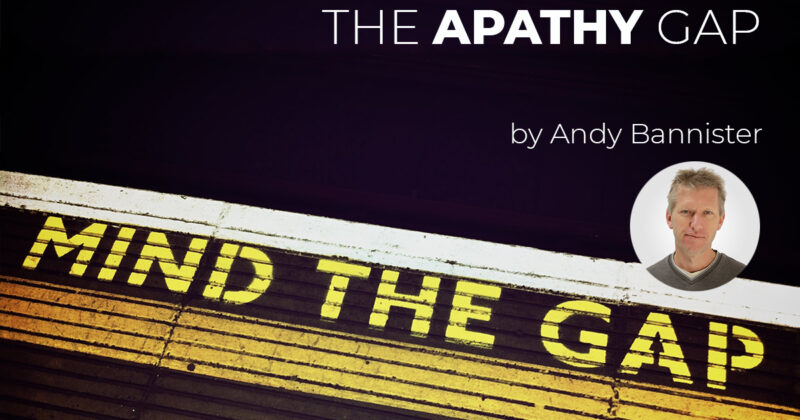

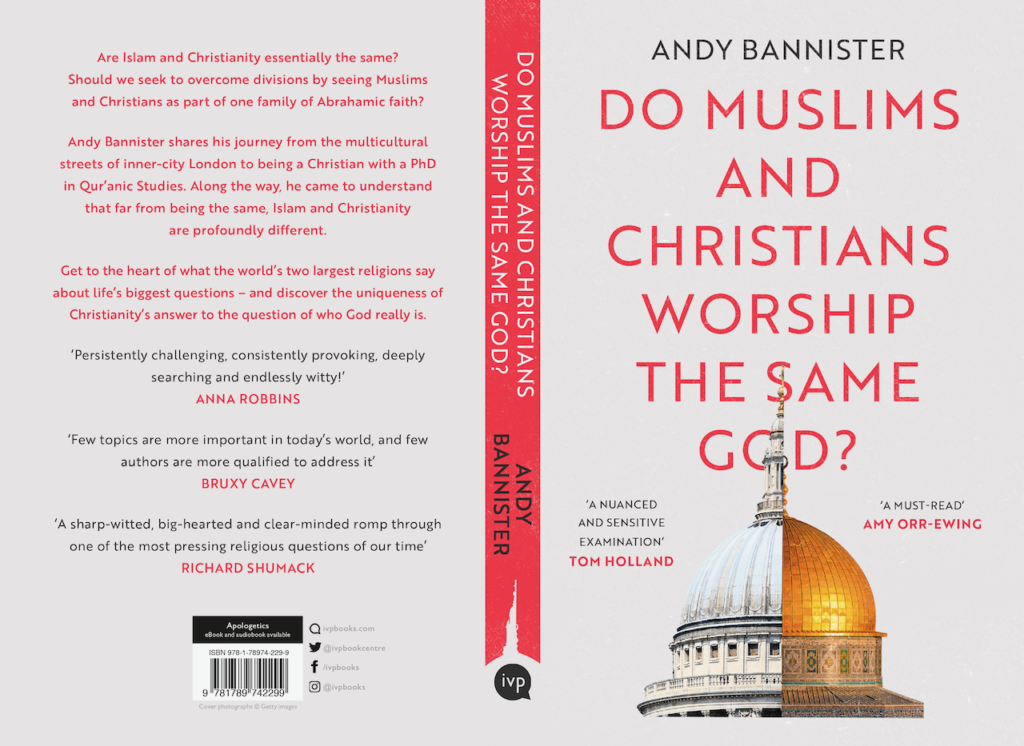



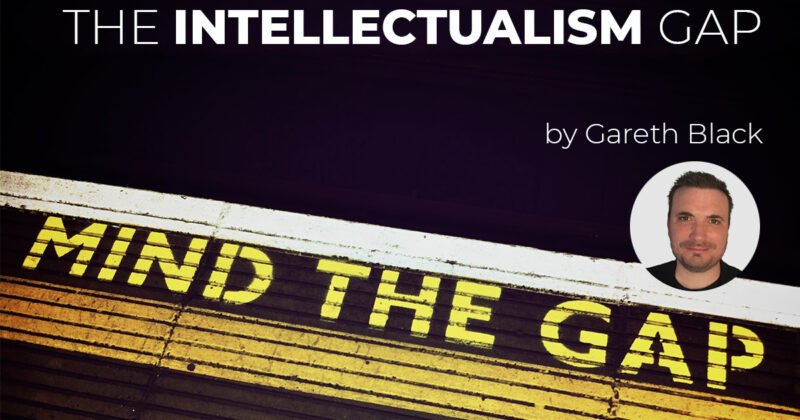
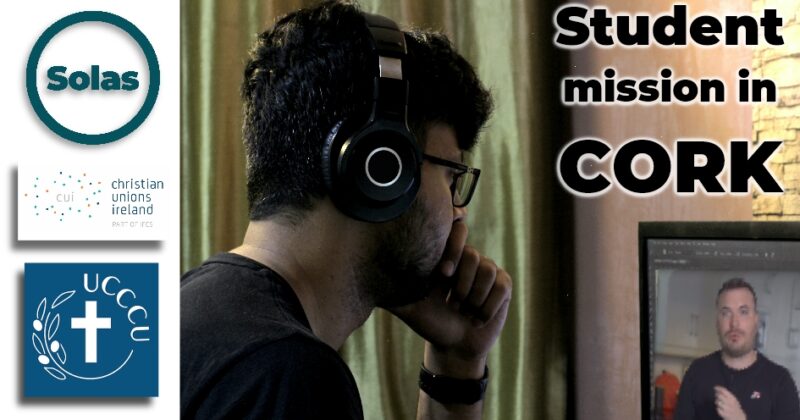
 Hannah Irwin is a Staff Worker with
Hannah Irwin is a Staff Worker with 